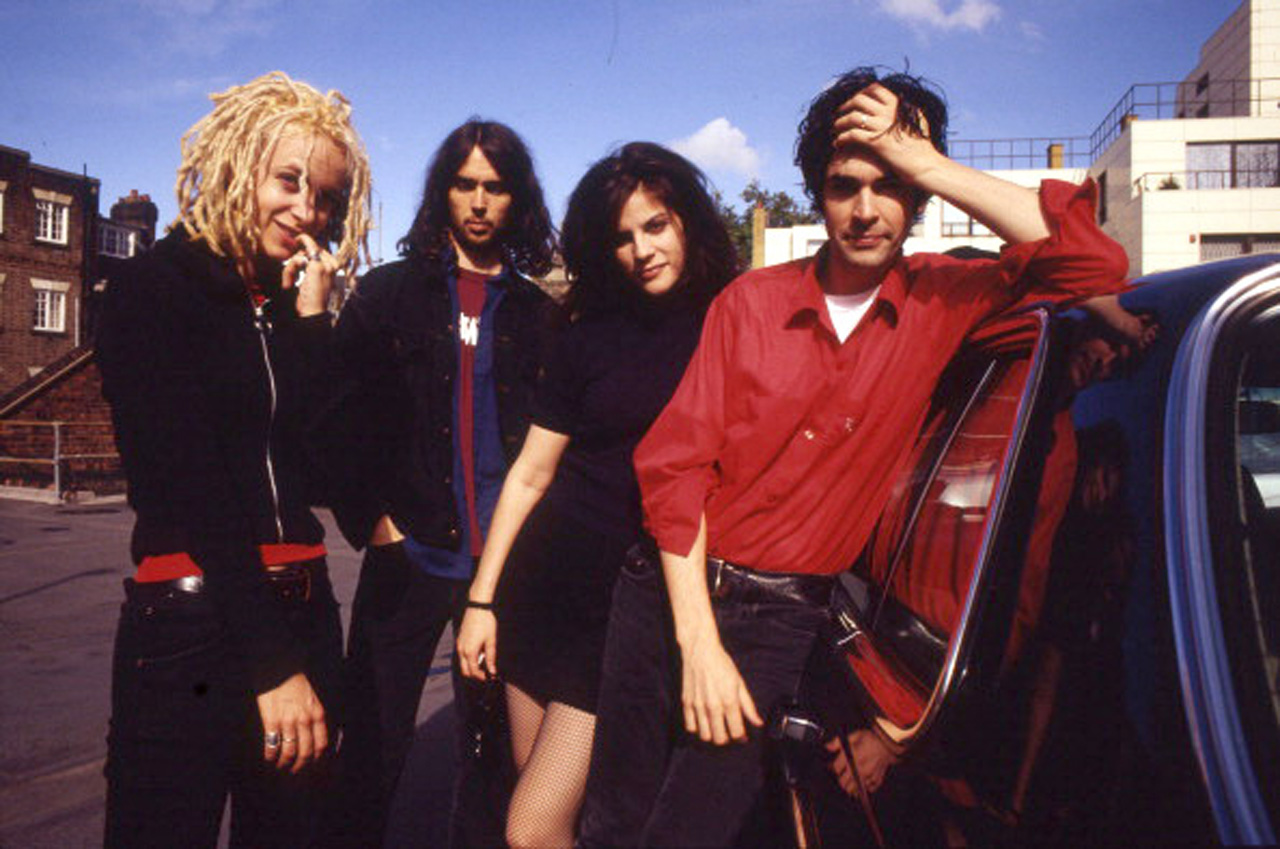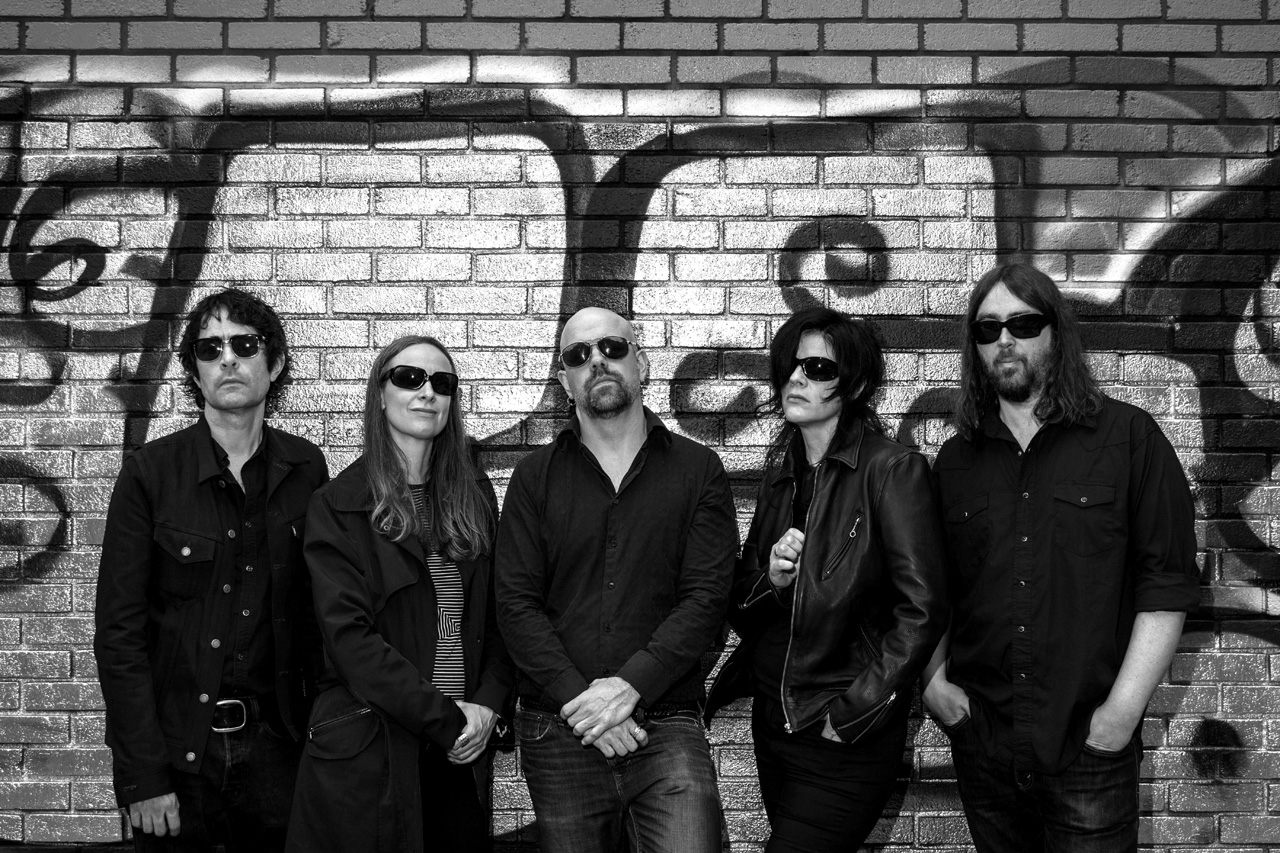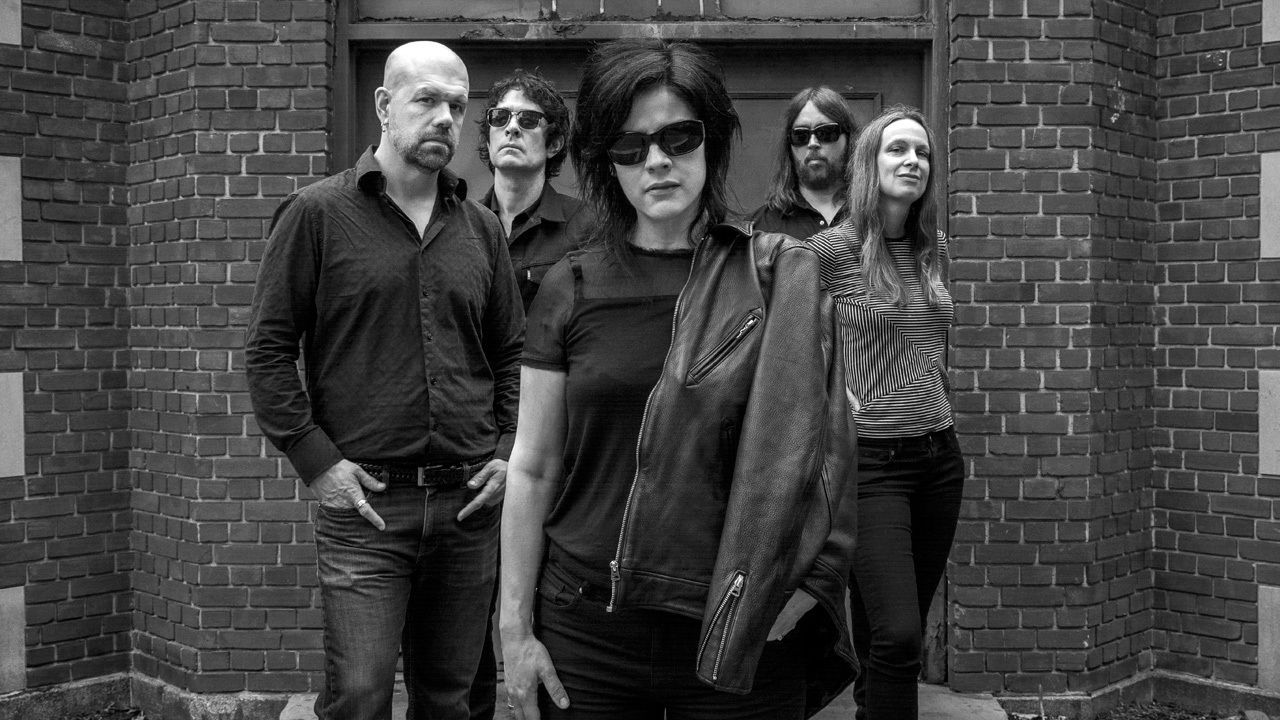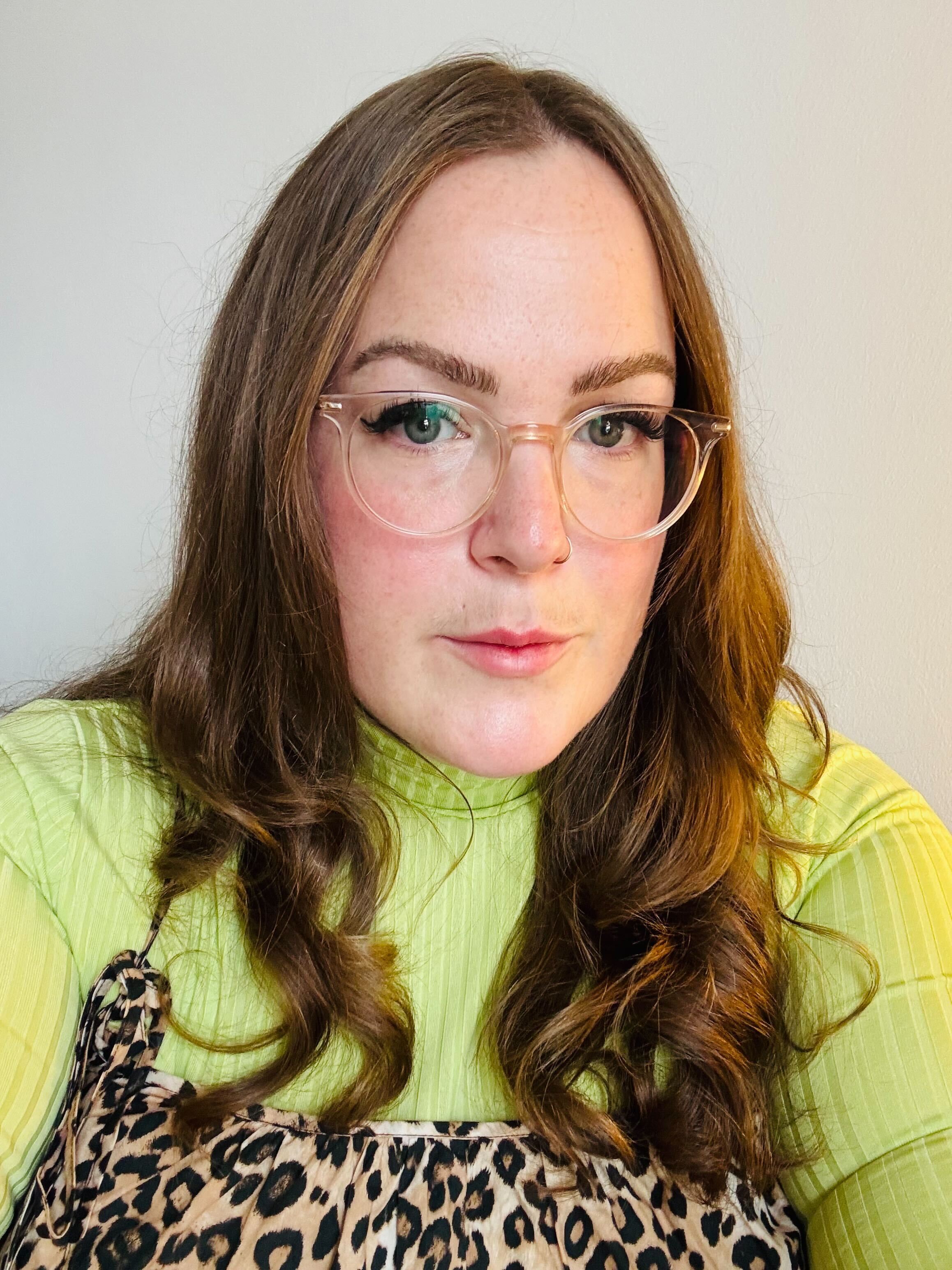Christina Martinez has led a storied life. As an integral part of garage rock group Pussy Galore – where she was joined by her husband and life-long collaborator Jon Spencer – she helped the band carve out a sound that owed as much to Einstürzende Neubaten as it did the Rolling Stones.
Though Martinez would eventually leave Pussy Galore, in, as she puts it, “the interest of keeping both [mine and Jon’s] relationship and [the band] alive”, the two went on to create a number of ferocious blues-punk albums under the name Boss Hog. However, prioritising parenthood meant that Boss Hog fell silent in 2000. Until now.
Having cut her teeth as the import buyer for Washington, D.C. institution Olsson’s Books And Records – where she ensured “a really fantastic selection of music, if I do say so myself” – Martinez found herself at the heart of a thriving movement that would go on to shape her life as well as her career.
“It was the golden era of record stores,” she says. “You’d just go in and hang out for hours, look through racks, check out new stuff. There was just so many record stores, and so many kids hanging out, it was like our iPhone or our internet. You [met] like-minded people and you could tell by what they were wearing what kind of thing they were into. It was much more of a dance and a game.”
The job would prove profound for Martinez in more ways than one.
“I got a pre-release of Scraping Foetus Off The Wheel – which is Jim Thirwell, he’s Foetus – his record,” she explains. “I liked his music and there was an import coming in from England, and it was just as the Jesus And Mary Chain released Psychocandy, right around that era. The Jesus And Mary Chain were coming to town to play, so I went to see them and ended up meeting Jon there. It was that record that we were talking about, and it was very rare to like that. In D.C. it was a Dischord [Records] scene, it was more kind of a hardcore scene, so it was unusual to find someone who appreciated that as well as I did. That was the one record that really changed my life.”

Growing restless in her hometown in D.C., Martinez decided the time was right to pursue her study of filmmaking. Her and Spencer, now a couple, set their sights on New York.
“I had been studying film with Stanley Brakhage, who is now deceased, but was one of the premiere US avant garde filmmakers,” she says. “I had studied with him at the University of Colorado and he really turned me on to the moving picture. So when I came back, I explored filmmaking courses, and there was a very good summer programme at NYU, [which] coincided with the fact that when I met Jon and was talking about my idea to do this, he had done that programme and recommended it.”
But there was another facet to the couple’s decision to relocate. Spencer, feeling the strain of a claustrophobic D.C. music scene, craved the freedom associated with the sounds coming from New York. “He wanted to move the band to New York too,” Martinez explains. “It was a little suffocating to be in a scene where you weren’t accepted – or, it was a little tough to operate [in]. I won’t say not accepted, because that’s a little harsh, but I do think it was difficult to operate if you didn’t operate within the norm of what the D.C. scene was. So together we felt like, ‘Well, let’s move to New York’.”
So, Martinez, Spencer and Pussy Galore made the move. Happy in their place as one of the “tiny, weird bands” on CBGB’s roster, an unexpected written exchange alerted Martinez to the fact they could be onto something bigger.
“I figured out that we’d do well enough when [no wave singer] Lydia Lunch wrote something about how horrible a person I was,” laughs Martinez. “She’d never met me, and I don’t know that she’d even seen Pussy Galore, and she wrote some scathing piece about [us] and how I was the most slappable one. So I figured out that people were perturbed by our existence, so we wouldn’t just fade away quietly. We were well noticed and displeased a number of people.”
This is where Boss Hog’s story really begins. Having quit Pussy Galore but still keen to create music with her husband, Martinez pulled together a bunch of former bandmates to create Boss Hog with her and Spencer. The band released three albums and a handful of EPs between 1989-2000, each of which earned generous critical appraisal and a devoted fanbase. But shades of Lunch’s earlier attack followed Martinez to her new project, as the singer remembers that their uncompromising image drew as many critics as it did fans.
“I felt quite comfortable with my sexuality, and I think that’s very obvious in the band and the way it presents itself,” she explains. “What I found most upsetting about the whole thing was that the people who railed against me worst were women. At the time – and maybe still – [people] had a very narrow view of what feminism should be. You couldn’t be sexual and a feminist; it was somehow considered bad.”
“I see the arguments, I understand it,” counters Martinez. “[But] it was my band and nobody made me do anything; I did it all of my own accord. I do think that rock’n’roll – especially our music – is very sexual, very sensual, so I see it as a natural part of [that]. Some of my favourite bands – like The Cramps – are all about sex and rock’n’roll, so I was confused by that. We sort of straddled a line between indie rock and garage rock, we were never very easily identifiable, so we got hit hard on all sides from the very beginning for doing things out of step with perceived notions of how we should be.”
Much has been made of Martinez’s creative relationship with nudity. Female nudity can be a powerful tool for subversion – was this part and parcel of the singer’s railing against what was expected?
“I’ll tell you what I think about that,” she says. “I really enjoy making records, and for me it was such an important thing – in the record store, when the new record would arrive you’d unpack it, and you’d really read every word on the front and back cover, and you’d pull out the sleeve and smell it. The tactile pleasure of holding this thing on you, and trying to figure out what the band were saying, and what they were about, and who they were, and what images they chose to give you… It was such an important part of my life that when I started making records, I thought it was really, really important to make sure that the artwork around the record spoke to the music. Our record was so raw and undisciplined, it really exposed all of who I was, which was difficult for me the first time I did it – really, really hard. I felt completely exposed psychologically, so I thought that that should be how I presented myself… with a wink.”
“I got so much shit for it, it was like, ‘Fine, I’ll do it always!’ she continues. “So that became a ‘Fuck you, tradition!’ But then after that I went back to it and thought, ‘Okay, this is really about exposing our souls, and who we are, always,’ and I think that nudity is a very good metaphor for that.”

Before releasing Brood X, it’d been 17 years since the band made an album. Having taken time out to concentrate on parenthood – a decision Martinez describes as “very much a conscious choice to make my son my priority” – music naturally took a backseat until an unexpected flurry of live performances in 2008 reignited the band’s creativity.
“We accepted some offers to do some shows and had a really fun time doing it,” says Martinez. “Then the keyboard player we had at the time, Mark Boyce, moved to the West Coast, so we [had] to get another keyboard player – the person who’s currently in the band, Mickey Finn – and once Mickey joined the band, he was super-energised and positive. I think his energy and his desire to do more really inspired us all to keep playing. So, we kept playing and routinely rehearsing, and after a couple of years we had written so much material that we thought we should finesse some of these ideas and make a record.”
Years later, their work started to take shape.
“It’s not been a fast process,” laughs Martinez. “The basic tracks for this record were recorded over two years ago now, but we have kept working and we still get together and play all the time, and now we have a goal. We have touring to do and we want to promote this record properly, but still even when we get together to rehearse we end up playing together and chatting because we genuinely enjoy each other’s company, so it’s a very satisfying experience. After a couple of years, it’s been a very natural but slow progression of writing.”
Despite the album’s long gestation, its themes are eerily prescient. Many have been interpreting it as a call to arms against the far right’s global upswing in popularity, despite the fact that a seat in The White House was no more than a glint in Donald Trump’s eye when the songs were written.
“This started out as a very personal record; the primaries were just beginning and no one in their right mind ever thought that we’d have a clown as a president,” says Martinez. “So, those [songs] were not really geared towards [Trump]. Since, the songs have taken on a new meaning and new importance. Now when we perform them, we have that in mind; that we need to resist and we need to keep people inspired. Because it’s going to be a long time, or a hard fight, to make sure that he doesn’t undo all the good that has been done in the previous administration, or completely ruin our Earth, or our humanity. So we’re in it for the long-haul and we hope to inspire people to continue the fight.”
Music, and blues in particular, has long been a vital tool in mounting resistance against oppression. Where does Martinez see its role now?
“I think a lot of the craziness has gone out of music,” she says. “My son makes music, and his music is more in-step with modern music. It’s beautiful – what he makes is absolutely stunning and beautiful, but it’s not as aggressive or confused. I think that’s a real thing. The confusion that you can hear in bands of my era was the real ‘I don’t know what the hell’s going on’ feeling… The urgency. That urgency seems to be gone, and that desire to connect seems totally not urgent anymore.”
She pauses.
“Maybe people will get a little more angsty now that the apocalypse has started.”
Brood X is released on 24th March via Bronze Rat Records.

